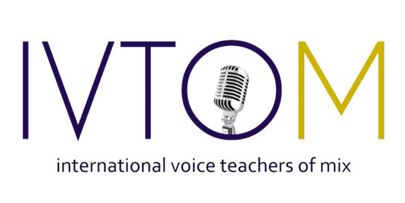Can We Be More Like Bocelli? by Anna Siciliano, MA/CCC SLP
Many of you know that my dad, Joe Siciliano, was an avid classical music collector. At one time, he had several thousand records in his collection. He loved the Tenor voice and I grew up listening to voices of all types.
Now that my dad is gone, my sisters and I have his collection and recently I have been listening to some of his cassette tapes. Strangely enough, my car has a cassette player in it.
A couple of weeks ago, I was listening to a recording of Pavorotti singing at the Met in New York. In the middle of an Aria, the music stopped and I heard a radio announcer interviewing a singer.
I quickly realized the announcer was interviewing Andrea Bocelli who was 47 years old at the time (he is 60 now). The announcer was asking Bocelli about his life, about his voice and about his health.
The Voice is Precious
Andrea explained that his voice is his life, that it is everything to him. He reported that his voice is something precious, something to be cherished and taken care of. Andrea stated that he tries to schedule his singing dates very carefully and in a way that does not deplete his physical strength. He reported that he usually schedules tour dates 3 to 4 days a part (now in 2019 he has a few tour dates back to back but many are spaced apart).
He reported, “The day after a big performance, I close”. The announcer, said, “You close”? Andrea said, “Yes, I close the lips, I close the voice and I rest”. He explained that he sings with all of his energy and soul and the day after, he rests his instrument. The day after rest, he sings lightly and the next day he sings more to prepare for his next concert.
Wow! One of the best vocalist in the world makes the time to actually rest his voice!! Andrea Bocelli stops both speaking and singing for one day to allow the voice to recover from a performance. I know now why 13 years later his voice is simply stunning!!
I had the opportunity to see Andrea Bocelli in concert this November. The concert was spectacular. There was full orchestra, a 75 person, choir, an outstanding female violinist and two female singers (one was a classically trained Soprano and one an Italian Alto). During the concert, Andrea sang one to three songs and then left the stage. This meant that after every couple of songs, the conductor walked him down the stairs off the stage and into a waiting area. Why did he do this? For dramatic effect? To hear the outstanding applause each time he reentered the stage? Or perhaps to rest his voice in between songs? I don’t know his reasoning, but the overall effect was stunning.
His voice was spot on all night and it was a long concert. Perhaps his voice means so much to him that he chooses to use it in a way that will allow him to travel around the world over several of months singing his heart out?
Now back to us, the “normal” people… do we need to rest our voices? In my professional opinion, the answer is yes. The voice, like any other muscle in the body needs time to rest, time to reduce swelling, time to re-circulate blood flow.
Many of your singing students do not have the luxury of having a schedule like Andrea Bocelli. Many of you work with Broadway singers who are in shows several nights per week. How do these singer’s rest their voices?
You may need to help your singer find a way to rest their voice.
Voice rest comes in varying levels: total voice rest, partial voice rest and voice conservation.
Total voice rest is usually only prescribed after a surgery or in the case of vocal hemorrhage. This can last a couple of days or up to 10 days. Most Laryngologists and Voice Specialists do not recommend resting the voice for longer than 2 weeks as the muscles can atrophy. In fact at a recent voice conference, one well known ENT Physician reported that the amount of voice rest recommended after a vocal fold surgery is becoming shorter and shorter. However, total voice rest is still a safe practice after injury, surgery or after a performance that may have caused swelling.
Partial voice restcan have a variety of meanings. I often advise my patient’s with nodules to speak 50% less than they normally do until the vocal folds become flexible again. Partial voice rest can mean no singing and limited speaking. It can mean no speaking on the day after a performance and singing only when practicing. Partial voice rest can be partial speaking voice rest and/or partial singing voice rest. It can be a useful and safe tool for the singer.
Voice Conservation. I often tell my patients that they have 100 voice bucks to use in a day. As their voice budget is limited, they should use their voice wisely. Perhaps they need to use their voice during a singing voice lesson and in voice therapy but they don’t need to use their voice to chat on the phone while driving in the car. Perhaps they need to have a short conversation with their spouse but they don’t need to sing along with the radio. The young singer may be advised not to talk at school, but to speak only during play rehearsal. Conservation is just that, saving the instrument for necessary use.
All of us need to be aware of the amount of speaking, noise making and singing we do in a given day. As a Voice Therapist, I often demonstrate the wrong and right way to use the speaking voice. After 7 hours of showing the wrong way to speak, my own voice needs rest. I try to rest my voice in the evenings if I have used my voice a lot during the day.
Voice Rest is a valuable tool to keep in your teaching tool box.
Anna Siciliano, MA CCC/SLP
Speech Pathologist
Clinical Voice Specialist

